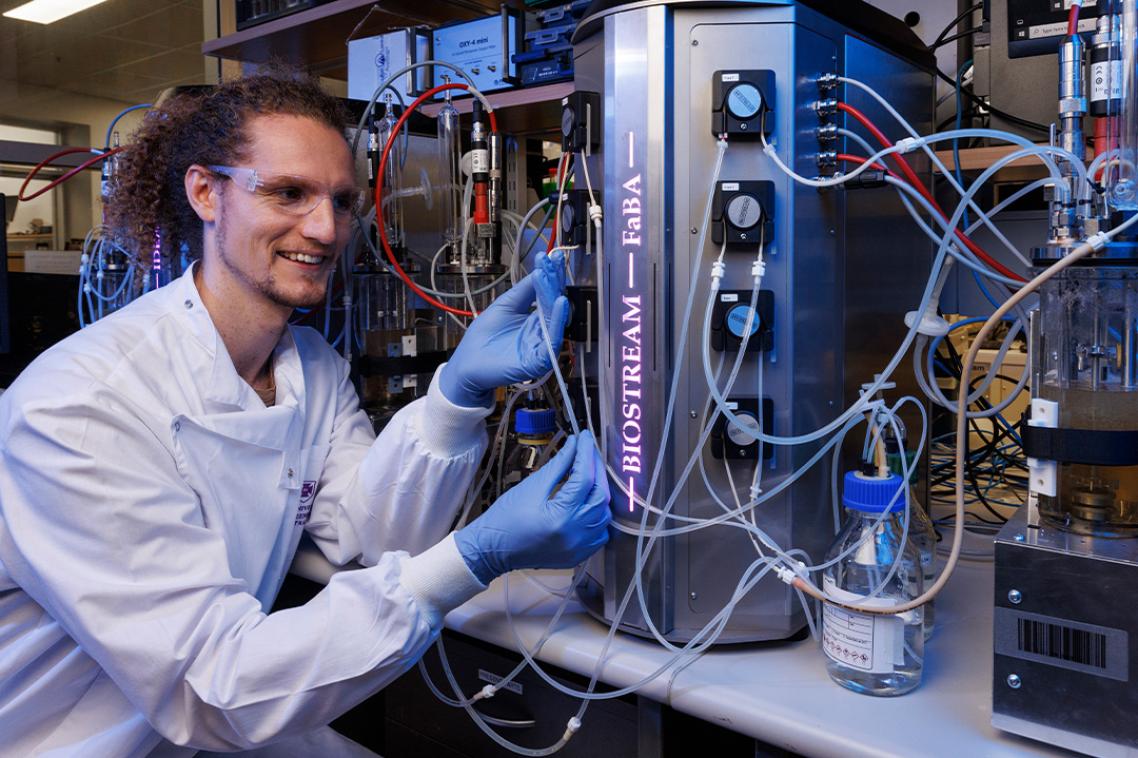Fermenting a future for food in Australia

Dr James Heffernan working with a FaBA-funded bioreactor at UQ's Australian Institute for Bioengineering and Nanotechnology.
Forming a National Food Plan and appointing a food minister are among the key recommendations of a white paper into growing a precision fermentation industry in Australia.
The Food and Beverage Accelerator (FaBA) based at The University of Queensland has released Precision Fermentation: A Future of Food in Australia.
Professor Esteban Marcellin from FaBA said precision fermentation was a transformative opportunity to strengthen food systems, foster economic growth, enhance environmental sustainability, and boost food security.
“Fermentation has been used for centuries to create staples like bread, cheese and beer,” Professor Marcellin said.
“Precision fermentation builds on traditional methods, offering the potential to develop entirely new ingredients, flavours and tastes.
“This technology can enhance and diversify our food supply – imagine microbial strains precisely engineered to yield high quality protein.
“We are on the brink of producing tailored, sustainable food sources.”
More than 70 authors from industry, government and academia contributed to the white paper, which explores areas crucial for industry growth, such as regulatory needs, sustainability, economic impacts, and ethical considerations.
Among the 8 key recommendations are establishing common international standards, boosting investment in large-scale manufacturing, and standardising methods to assess environmental impacts.
“Our primary recommendation is to develop a National Food Plan that would unify efforts in regulation, innovation and promotion of precision fermentation,” Professor Marcellin said.
“This approach would enable streamlined approvals, better integration with traditional agriculture, and a coordinated strategy to build a robust industry.”
FaBA Director Dr Chris Downs said research had an important role to play in meeting future food challenges.
“As a global society, we must innovate and transform the food system if we are to address some of the greatest challenges of our time,” Dr Downs said.
“Precision fermentation represents a promising approach, alongside conventional food production, for the future of Australia’s food and beverage industry.”
Related articles

Anyone can be a hacker with AI – so what does that mean for the cyber defence industry?

Brazil claims to be an environmental leader. Are they?
Media contact
UQ Communications
communications@uq.edu.au
+61 429 056 139
